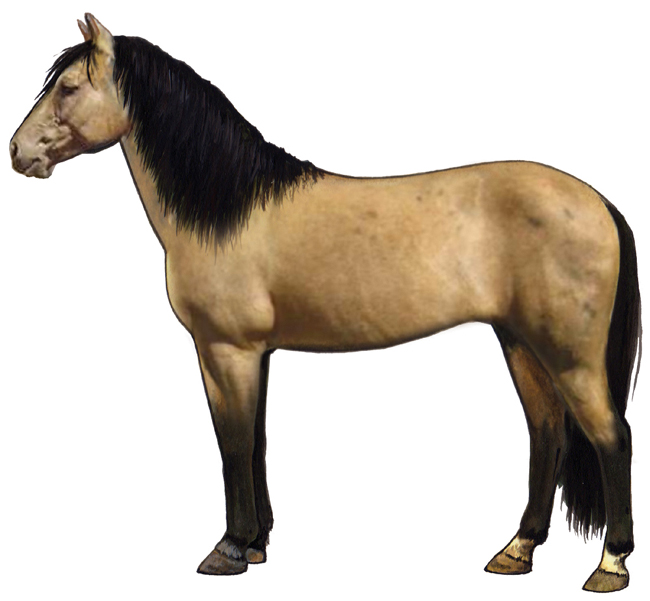|
|
| Spanish Mustang |
 |
The true
Spanish Mustang is a direct descendant of the horses brought to the
New World by the early Spaniards. Confused by many with the feral
horses currently managed by the Bureau of Land Management there is a vast
difference in both appearance and ancestry.
Columbus, on order from
the Spanish throne, commenced bringing the first Spanish horses to
the New World on his second voyage. Thereafter, each ship headed for
the New World, by order of the Crown, carried breeding animals of
choice Spanish stock. Breeding farms were set up in the Caribbean
and subsequently in Mexico. Breeding farms such as the one operated
in Sonora, Mexico by Padre Eusebio Kino, a Jesuit priest, produced
stock, including horses, which were placed with each group of
Christianized Indians as Kino expanded his efforts further and
further north. The Apaches, never falling under the spell of the
Church, ravaged and pillaged these little "visitas" taking stock at
will. They also plundered deep into Mexico allegedly as far as
Mexico City. Their goal - well-bred and trained Spanish horses from
the Mexican estancias. Through trade of these valuable horses
northward to other tribes the Apaches became one of the primary
methods of spreading the Spanish horses over the west. Over the
years horses escaped, were lost or stolen and many became feral,
roaming all over the west. Eventually they numbered in the hundreds
of thousands, closely related to the horses maintained by some of
the Indian tribes, indeed, they were basically the same horses.
Considered the finest horses in the
known world at the time of the Conquest of the New World, the
Spanish horse left a legacy in its tough, beautiful, hardy
descendants that endures to this day. On the brink of extinction in
the early part of this century, their salvation can be attributed
primarily to Robert I. Brislawn of Oshoto, Wyoming, who founded the
Spanish Mustang Registry, Inc. in 1957. |
Image
copyright Feenixx Publishing.
All right reserved. May not be used without prior written consent. |
|